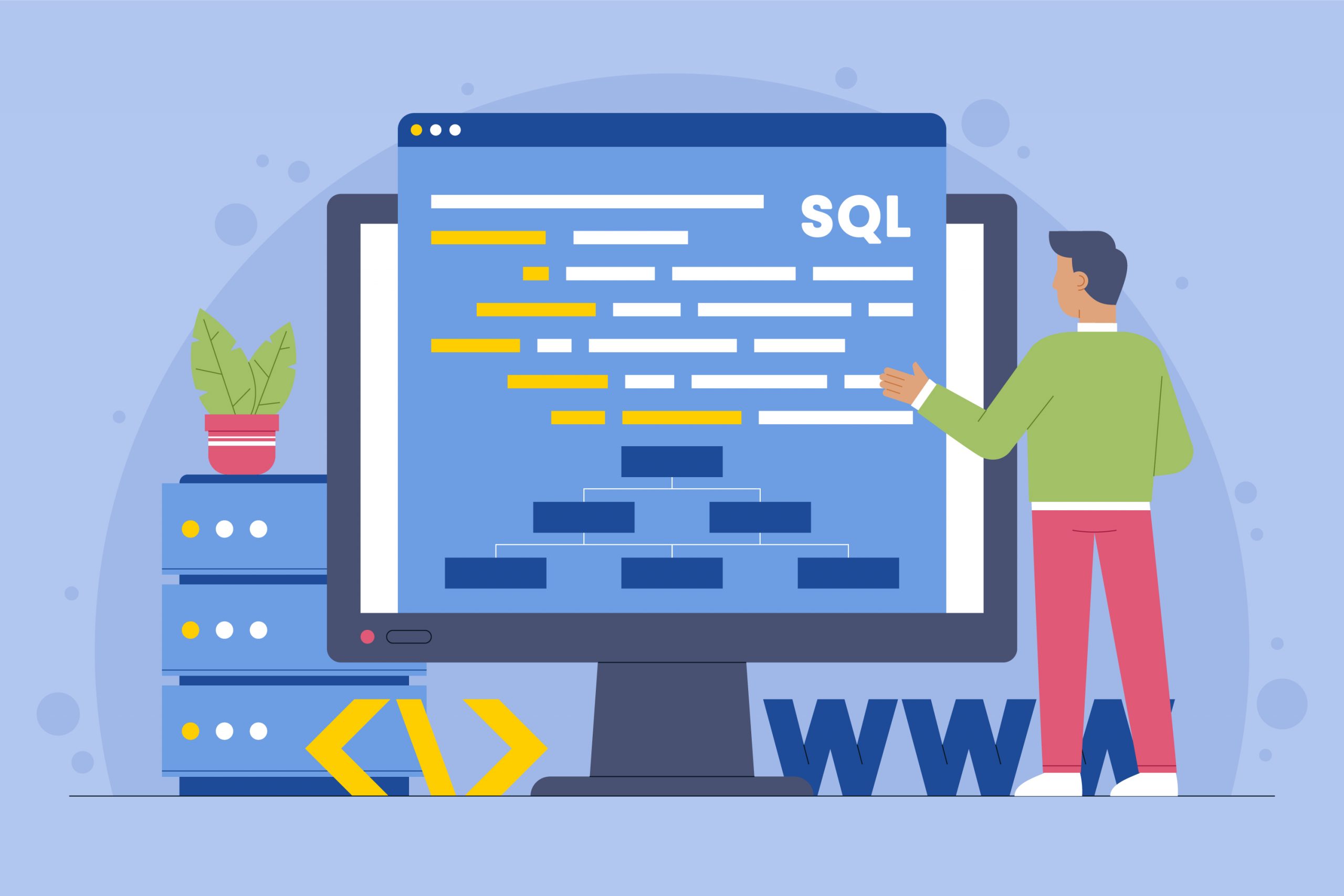
27 Jun Introduction to databases (SQL) for financial approaches
Maximize the potential of your SQL database for financial success! Discover how to drive efficiency in the financial sector and the key skills to enter this field. Unlock the potential of financial databases.
Discover the power of SQL Databases!
SQL databases are relational database management systems that use the SQL language to store, organize and manipulate data. These databases have several key features that make them indispensable in the financial sector.
Main characteristics
First of all, SQL databases follow a relational structure, which means that data is organized in tables composed of rows and columns. This structure makes it possible to establish relationships between tables and to perform complex queries using JOIN clauses.
In addition, SQL is the language used to interact with data in SQL databases. It provides a set of commands and syntax that allow performing operations such as creating and modifying tables, inserting and updating data, and queries to retrieve specific information.
Another important feature of SQL databases is data normalization. This involves designing data structures without redundancy and ensuring data integrity. Normalization reduces duplication of information and ensures that data is consistent and up-to-date.
SQL databases also offer advanced query and analysis capabilities. The SQL language allows sophisticated queries to be performed using commands such as SELECT, WHERE, GROUP BY and ORDER BY. This facilitates filtering, sorting and grouping data according to specific criteria. In addition, it is possible to perform data analysis using functions and statistical operations integrated in SQL.
Security and access control are key features of SQL databases. These systems offer security mechanisms to protect sensitive data, including user authentication, access control based on roles and privileges, and encryption of sensitive data.
Finally, SQL databases are highly scalable, which means they can handle large volumes of data and deliver optimal performance in demanding work environments. This is essential in the financial sector, where large amounts of transactional data are managed.
How do SQL databases benefit Fintechs and financial institutions?
- Efficient data storage and management: Discover how SQL databases provide a robust structure for storing and managing large volumes of information, ensuring fast retrieval and updating of data.
- Specialized data modeling: Explore how financial data modeling allows you to design tables and relationships that accurately reflect different financial elements, facilitating analysis and strategic decision making.
- Advanced queries and data analysis: Learn how to use SQL language to perform sophisticated queries that provide you with detailed information on financial product performance, risk analysis and customer behavior patterns.
- Security and Compliance: Discover how SQL databases provide robust mechanisms for protecting sensitive data and complying with financial regulations, ensuring the confidentiality and integrity of customer data.
- Integration with financial applications: Explore how SQL databases easily integrate with financial applications, improving process automation and providing a seamless experience for customers.
Basic skills to enter the financial sector
After giving you information about SQL databases, their main features and how they contribute to the Fintech world and you are a programmer, we share with you the basic knowledge you must have to enter the sector.
- SQL language: Learn the basics of SQL, such as SELECT, INSERT, UPDATE and DELETE statements, as well as the use of clauses such as JOIN and GROUP BY for more complex queries.
- Database design: Understands the principles of database design, including normalization, entity and relationship identification, and the establishment of primary and foreign keys.
- Financial Data Modeling: Gain knowledge of key financial elements and how to represent them correctly in the database model.
- Query Optimization: Learn techniques to optimize queries and ensure optimal database performance as it grows in size.
- Database Security: Become familiar with database security best practices, including user management, data encryption and vulnerability detection.
- Financial business knowledge: Gain basic knowledge of the financial industry, such as investments, lending and regulations, to better understand data and specific business needs.
- Related tools and technologies: Stay up-to-date with the tools and technologies used in the database field, including popular management systems and emerging technologies such as NoSQL databases and big data.
From efficient data storage and management to advanced analytics and security, these databases drive efficiency and strategic decision making. If you are interested in entering the financial database field, acquiring skills in SQL language, database design and financial business knowledge is essential. Stay up-to-date with the relevant tools and technologies, and you’ll be prepared to excel in this exciting field.
Join us in our upcoming blog posts as we delve into the exciting world of SQL databases and other topics around the financial and technological world!
